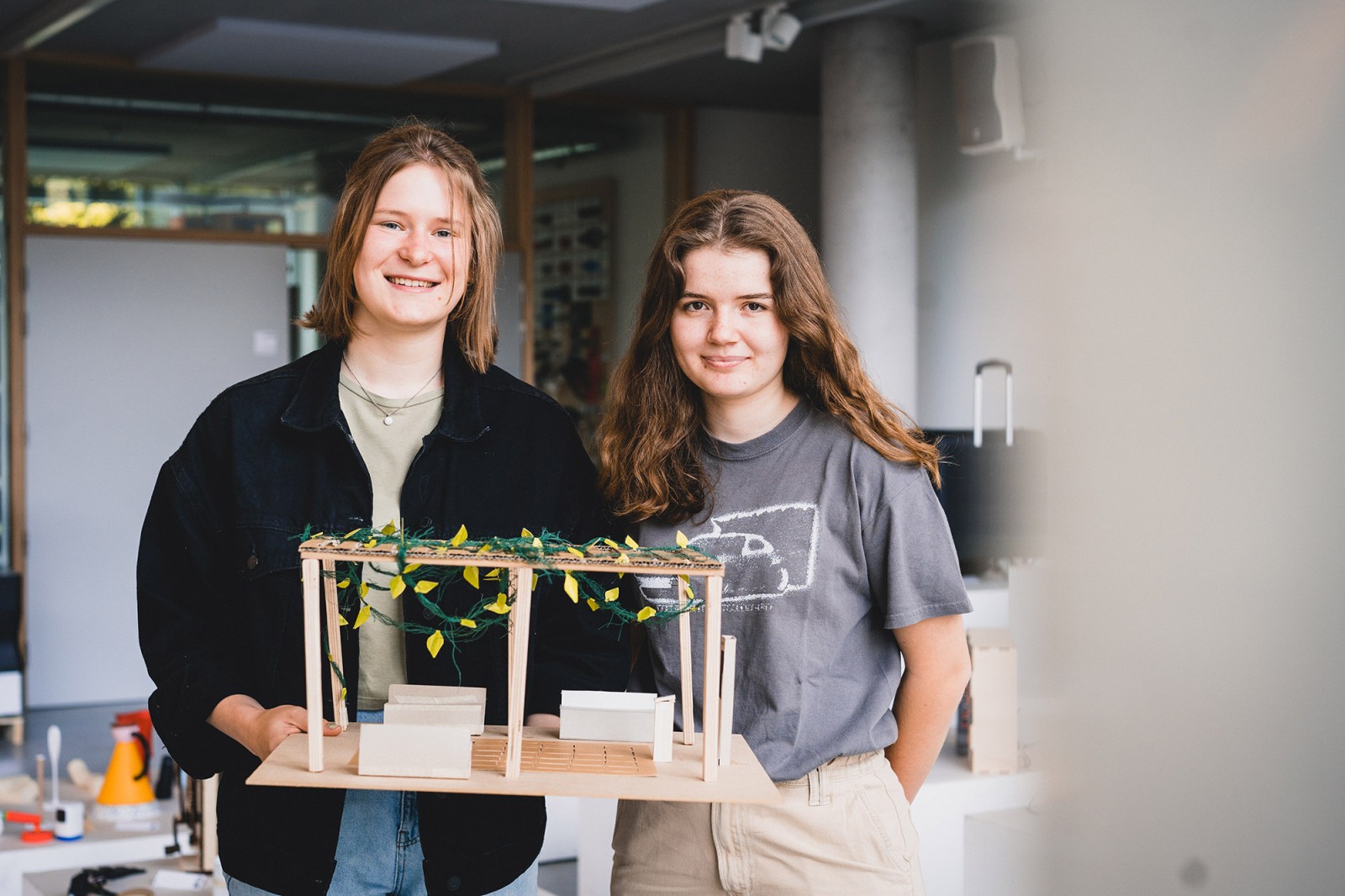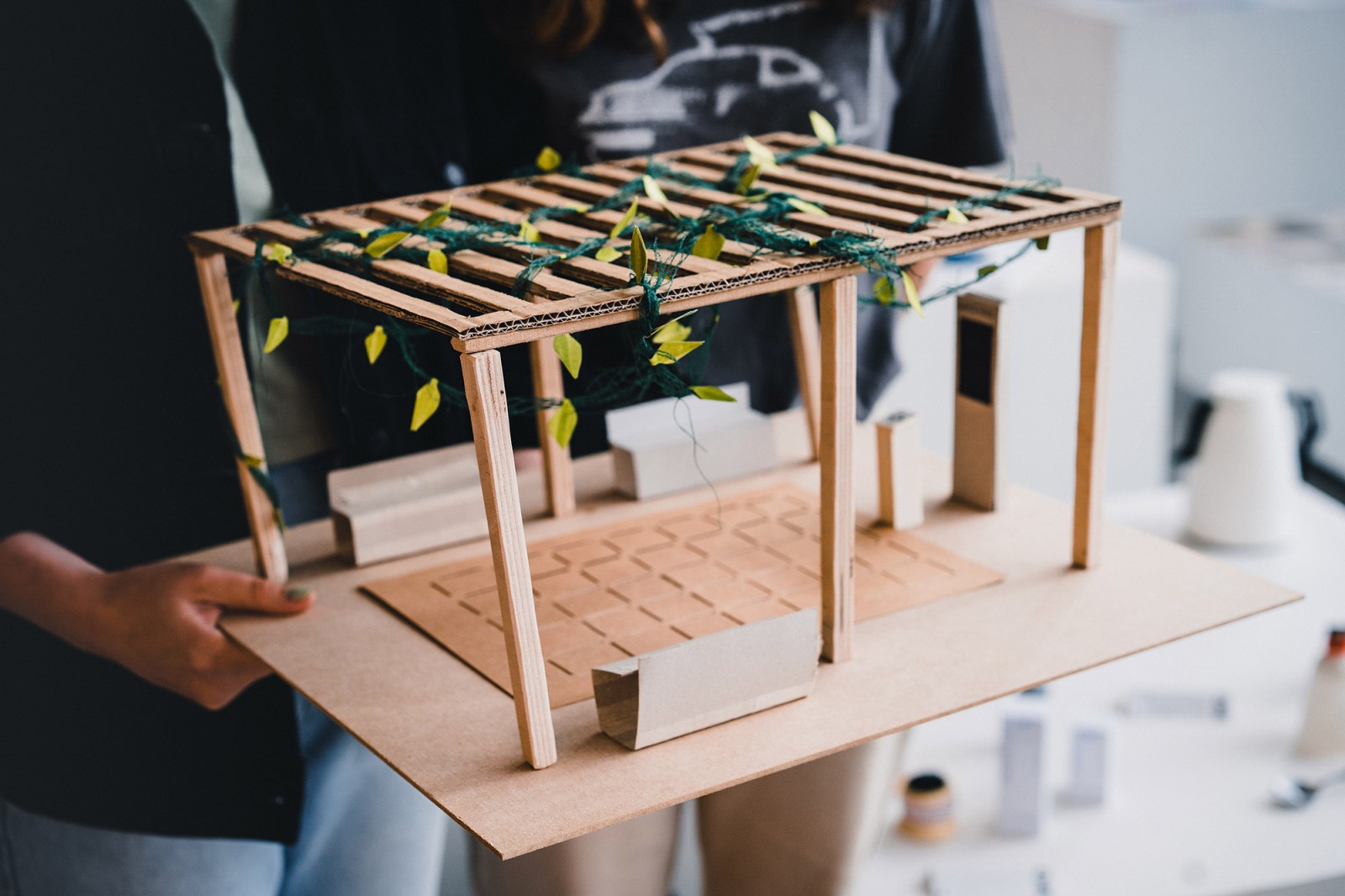Inventing technological solutions to make local communities stronger, that is the challenge of Samsung Electronics' Solve for Tomorrow ideas competition. Elisabeth and Rune won the Belgian qualifying round at the beginning of May and will soon go to the European finals with their GameYard.

Solve for Tomorrow was launched to increase interest and skills in science, technology, engineering and mathematics among young people. The task: find original and technological solutions to improve the quality of life of communities.
Rune: "The competition started a few years ago in the United States, but has now spread to Europe. The mission is to improve people's overall well-being with original and technological solutions. But we have specifically focused on combating loneliness in the city."
What idea did you come up with for the competition?
Rune: "With GameYard, we offer a new take on the widely known playground. We want to transform the physical square into an interactive playing field with tiles that you can press and which light up through LED strips. There will be benches next to the square and, via a central screen, you can choose a game to play on the square. If you choose Pong, for example, the playing field is lit up to play that specific game. Other options include chess or Twister. All the games require several people to play, so this way you will hopefully also make contact with strangers to complete your team."

How do you rate the chance that a real GameYard will one day be built somewhere?
Elisabeth: "I think there is a lot of potential for the plan to work. Everyone is very enthusiastic about it and I can really imagine playing in the square. It's a shame that we have to stop at a scale model for the time being because it's too big and too expensive to make a real-life prototype at the moment."
You are both studying Industrial Design at Campus Kortrijk. Why did you choose this course?
Elisabeth: "I came to an information day and I was immediately hooked when I walked around in the design studio. It's very motivating to walk around here and see all the works of the other students. I'm always curious how they made it."
Rune: "We are with a small group of students here, so the professors really know you personally and follow you closely. The students also all know each other. After our victory, everyone was happy for us. So it's a really cool atmosphere here."
Wat is Samsung Solve for Tomorrow?
At the beginning of May, 10 teams presented their pitch in front of a jury composed of representatives from Samsung and Ghent University. In the presence of friends, family, fellow students and among others Sofie Bracke, alderman for Economy, Trade, Sports and Port of the City of Ghent, they showed how their idea could help make our community better through technology. A European final follows in July.
Professor Lieven De Marez, Department of Communication Sciences: "Daring to think, interdisciplinarity and bringing the professional field into the study programme... these are things that we feel very strongly about at UGent. Thanks to Samsung's Solve for Tomorrow, we have the opportunity not only to bring these elements together, but also to apply them to a social innovation issue. Technological innovation as a means and not as an end in itself."
Read also
Six tips for healthy screen time (for children & adolescents)
Our children are growing up in a world filled with screens. How much should we worry about this? Professor Mariek Vanden Abeele (imec-mict-UGent) analyses the benefits and drawbacks of digital connectedness among young people, and tells us how we can ensure healthy screen time.
Ghent University to train the language technologists of the future
At the Faculty of Arts and Philosophy, starting next academic year, you can opt for an educational track to become a language technologist. A sought-after profile on the job market, so it seems.
Accepting cookies? Less innocent than you think
We all do it, accepting cookies without thinking when we visit a website. It seems quite harmless, but it is not. In fact, it is downright dangerous, according to human rights expert Professor Joe Cannataci.
Coach CoDi: the motivation-boosting tool that helps children become independent coders in Scratch
Ensuring that every child learns how to code, that is the common goal of several UGent researchers and the educational platform CodeCosmos. They developed a digital co-teacher together for the popular programming language Scratch. A world-first because this is the first tool that can automatically evaluate Scratch exercises. “Coach CoDi goes light years beyond all other feedback tools”, says UGent professor Christophe Scholliers.



